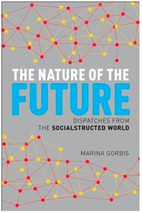Future Now
The IFTF Blog
Socialstructing empathy and human experience
IFTF is a proud presenting sponsor of the Global Lives Project's newest series, Lives in Transit, which documents a day in the life of 10 transit workers around the world. The Global Lives Project, founded by IFTF's David Evan Harris, is a collaborative, immersive library of human experience. The organization's goal is to build empathy through shared cross-cultural understanding, both through the videos and accompanying school curriculum.
But according to our Executive Director, Marina Gorbis, "what is equally instructive is how the videos themselves are created." In her book, The Nature of the Future, Marina features David and Global Lives, telling the story of the organization's creation and its socialstructed approach:
In 2002 David Evan Harris, like so many other college students, was spending his junior year abroad, traveling through Tanzania, India, the Philippines, Mexico, and the United Kingdom. In each of these places he lived with local families, sharing their intimate spaces and daily lives. He stayed in a bamboo house in the Philippines, a former squatter settlement in Mexico City, and a mansion in New Delhi. As with many young people having their first overseas adventure, the experience left an indelible mark on David. “I went from thinking of those countries as nations of abstract numbers of millions of people to thinking of them as individuals,” he says. Unlike many college students who return from abroad and go back to their regular lives, however, David parlayed his experience into a global social enterprise—part art project, part anthropological resource, part social movement.
The Global Lives Project is a collaboratively built video library of human life experience. For its first major undertaking, the Global Lives team captured twenty-four continuous hours in the lives of ten people in different parts of the world. How were the ten people selected? In the early 2000s, David saw an email asking what the world would look like if it had only one hundred people. Based on proportional distribution, only one person would have a computer, only one would have a college degree, thirty-three would not have access to clean drinking water, and so on. When reading the emails, David was struck by the contrast between what he was reading and the demographics of his social network, mostly college-educated middle class Americans. It inspired him to select ten people who would be representative of the global population...
Read the entire excerpt here and join us for the Lives in Transit sneak preview and party, Thursday, January 9 from 6-11pm in San Francisco.





